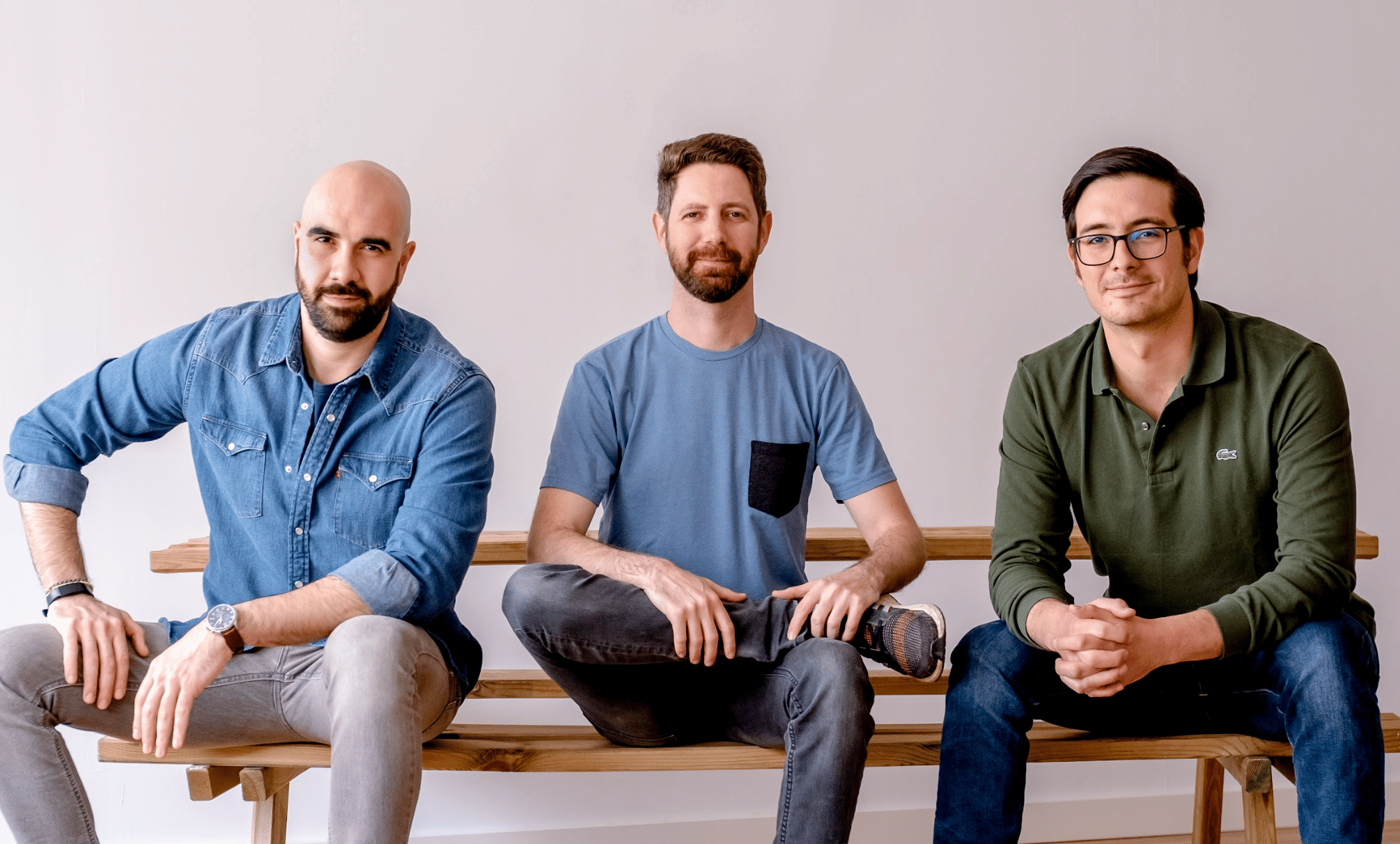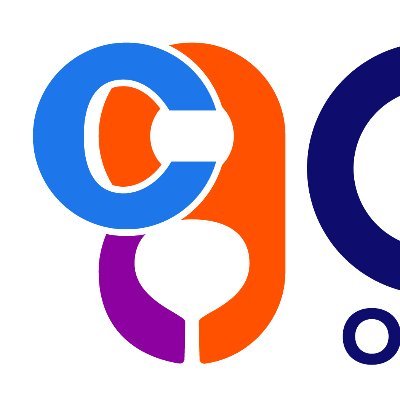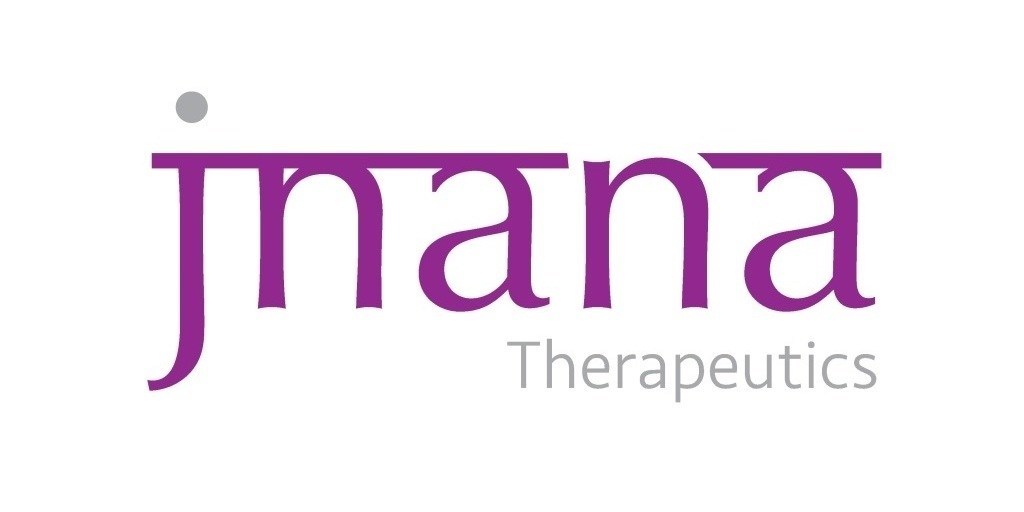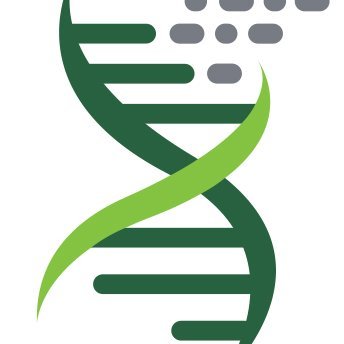FundaMental Pharma, Qunomedical, Turbine
Opna Bio Raises $38M in Series A Financing
Opna Bio, an Epalinges, Switzerland and San Francisco, CA-based clinical-stage biopharmaceutical company, raised $38M in Series A funding.
The round was led by Longitude Capital and Northpond Ventures, with participation from Menlo Ventures.
The company intends to use the funds to develop novel fragile-X mental retardation protein (FMRP) inhibitors in oncology as well as a diverse portfolio of clinical and preclinical oncology programs acquired from Plexxikon Inc.
Co-founded by Gideon Bollag, PhD, who was appointed chief executive officer; Douglas Hanahan, PhD, distinguished scholar in the Lausanne Branch of the Ludwig Institute for Cancer Research and emeritus professor at the Swiss Federal Institute of Technology Lausanne (EPFL); and Joseph Schlessinger, PhD, professor of pharmacology at Yale University School of Medicine, Opna Bio is a clinical-stage biopharmaceutical company focused on the discovery and development of oncology therapeutics. Its broad portfolio targets multiple drivers of cancer, including an oncology discovery program focused on the fragile-X mental retardation protein (FMRP) and a diversified pipeline of validated oncology assets acquired from Plexxikon. In addition to its discovery-stage FMRP program, Its clinical compound, OPN-2853, a bromo and extra terminal (BET) domain inhibitor, is currently in a Phase 1/2 trial with ruxolitinib (Jakafi®) in myelofibrosis, a chronic bone marrow disorder. The company also expects to initiate a Phase 2 study with OPN-7486, a colony stimulating factor 1 (CSF1) receptor inhibitor, in 2023.
As part of Opna’s formation, the company acquired a portfolio of small molecule oncology therapeutics from Plexxikon Inc.

Opna Bio Raises $38M in Series A Financing
Opna Bio, an Epalinges, Switzerland and San Francisco, CA-based clinical-stage biopharmaceutical company, raised $38M in Series A funding
FundaMental Pharma Launches With €10M in Seed Financing
FundaMental Pharma GmbH, a Heidelberg, Germany-based preclinical neuroscience company, raised €10M in Seed funding.
The round was led by BioGeneration Ventures and Thuja Capital, with participation from High Tech Gründerfonds.
The company intends to use the funds to accelerate growth, and expand its development efforts.
Built on the pioneering research of Professor Hilmar Bading and Dr. Jing Yan and founded by Dr. Thomas Schulze, and Professor Hilmar Bading, FundaMental Pharma is a neuroscience company, spun out of Heidelberg University, developing small inhibitors for treatment of a range of neurodegenerative diseases. Its scientists have discovered an entirely new class of drugs that safely counteract glutamate excitotoxicity, a common cause of neurodegeneration. While FundaMental current focus is on Amyotrophic Lateral Sclerosis (ALS) and Huntington’s Disease, the applicability of these molecules extend to a range of neurogenerative disorders such as dementia and aging-related memory loss.

FundaMental Pharma Launches With €10M in Seed Financing - FinSMEs
FundaMental Pharma GmbH, a Heidelberg, Germany-based preclinical neuroscience company, raised €10M in Seed funding
10 million euros for Sophie Chung's patient startup
The Berlin startup Qunomedical has raised ten million euros as part of a Series A financing round with Bertelsmann Investments and early-stage investor Dieter von Holtzbrinck Ventures. Existing investors such as the US fund Ms&Ad Ventures and Calm Storm from Vienna also took part in the round.
The money is to flow into the further development and expansion of the startup's so-called patient relationship management software. The tool, which bears the name Qunosuite, is designed to relieve hospital staff of their workload so that more time is spent on actual work with patients and less on administrative tasks.
After studying medicine in Vienna, Chung worked for the management consultancy McKinsey. In 2016, the Austrian founded the startup Qunomedical. With the B2B software Qunosuite, she gives doctors a tool with which appointments and the collection of patient data can be processed digitally and, for example, photos, laboratory reports and scans can be managed. "We replace people with machines where people are not needed," explains the founder. Ten hospitals are currently using the Berlin startup’s tool and pay a monthly fee for it. Last year, Qunomedical generated sales in the single-digit millions.

Qunomedical sammelt 10 Millionen Euro ein - Business Insider
Krankenhäuser unter Dauerlast – das will Sophie Chung ändern. Die Gründerin hat neue Investoren für ihr Startup Qunomedcial gewonnen.
Turbine Raises €20M in Series A Financing
Turbine, a Budapest, Hungary-based company developing a cell behavior simulation platform, raised €20M in Series A funding.
The round was co-led by Mercia and MSD Global Health Innovation Fund, with participation from Day One Capital, Accel, Delin Ventures, and XTX Ventures. In conjunction with the financing, MSD GHI Fund and Mercia Asset Management have delegated members to Turbine’s new Board.
The company intends to use the funds to drive its first-in-class programs targeting DNA Damage Repair.
Founded by Kristof Szalay, Daniel Veres, and Szabolcs Nagy (CEO), Turbine has developed and validated the Simulated Cell, a proprietary and platform that runs billions of simulations prior to ever initiating preclinical development guiding real-life experiments with invaluable biological insights. This improves the likelihood of success for novel therapies and allows existing assets to be optimally targeted to patients most likely to benefit from them. Its technology leverages artificial intelligence (AI) to build a constantly evolving, predictive simulation of cellular signaling. Simulations have already been validated from target discovery to patient stratification and life cycle management in collaborations with multiple big pharma companies.

Turbine Raises €20M in Series A Financing
Turbine, a Budapest, Hungary-based company developing a cell behavior simulation platform, raised €20M in Series A funding
Madrid-based ifeel raises €10 million to support employee mental health and wellbeing
Healthtech startup ifeel is using AI to empower companies to better provide mental health care and wellbeing services for their employees. The Madrid-based startup has just secured €10 million to expand and make mental health support part of workplace culture.
The Series A investment was led by UNIQA Ventures. Nauta Capital and other investors have also participated. The startup has now raised a total of €18 million.
This additional funding will be used to expand the business into new markets, introduce new products, and increase sales capabilities. The company will continue to focus on large companies.
Led by CEO Amir Kaplan, the Madrid-based startup gives companies the ability to provide their employees with improved mental health care through digital channels. It combines data analytics and clinical research by psychologists on its platform to provide employees with a new way to manage their emotional wellbeing, from self-care to therapy sessions. Leveraging over 10 million data points, the platform is able to, on one side, efficiently screen, triage and prioritise several users’ profiles and, on the other, customise their user experience through a blend of hundreds of clinical tools and AI-enhanced personalised recommendations. Using the platform, users can access different resources depending on their needs and interests: articles on health-related topics, an emotions diary, audio guides, and tools to facilitate relaxation or meditation. They can also speak directly to professional psychologists or initiate an online therapy session through the service.

Madrid-based ifeel raises €10 million to support employee mental health and wellbeing | EU-Startups
Healthtech startup ifeel is using AI to empower companies to better provide mental health care and wellbeing services for their employees. The
FogPharma Raises $178M in Series D Financing
FogPharma, a Cambridge, MA-based biopharmaceutical company, raised $178M in Series D funding.
The round includes new investors ARCH Venture Partners, Milky Way Investments, Fidelity Management & Research Company, and existing investors VenBio Partners, Deerfield Management, GV, Cormorant Asset Management, T. Rowe Price Associates, Invus, Farallon Capital Management, HBM Healthcare Investments, Casdin Capital, and PagsGroup.
The company intends to use the funds to advance and accelerate its pipeline of hyperstabilized α-helical polypeptide therapeutics.
Led by CEO Gregory Verdine, FogPharma is a biopharmaceutical company developing Helicon polypeptides. Through this novel therapeutic modality, the company aims to address the limitations of existing drug classes and achieve universal druggability, a world where no targets are off-limits to new medicines. FogPharma is advancing a broad pipeline of Helicon polypeptide therapeutics against important and biologically validated cancer targets with the goal of providing new targeted treatment options for significant cancer patient populations. Its lead Helicon polypeptide development candidate, FOG-001, a direct TCF-blocking β-catenin inhibitor with potential applicability to significant cancer patient populations, is expected to enter clinical development in mid-2023. In addition, FogPharma is advancing other programs against important, biologically validated cancer targets including TEAD, NRAS, Pan-KRAS, ERG and Cyclin E1.

FogPharma Raises $178M in Series D Financing
FogPharma, a Cambridge, MA-based biopharmaceutical company, raised $178M in Series D funding
CG Oncology Raises $120M in Series E Financing
CG Oncology, an Irvine, CA-based oncolytic immunotherapy company, raised $120M in Series E funding.
The round was co-led by ORI Capital, Longitude Capital and Decheng Capital, with participation from RA Capital Management, Acorn Bioventures, Malin Corporation, Ally Bridge Group and Sirona Capital. In connection with the financing, Brian Liu, M.D., Principal from Longitude Capital, will join the company’s board of directors.
The company intends to use the funds to advance its clinical programs in bladder cancer towards FDA approval as well as broaden the scope of its pipeline to address unmet medical needs in urologic cancer, such as the first-line setting in Bacillus Calmette-Guérin (BCG)-naïve, intermediate-risk non-muscle invasive bladder cancer (NMIBC) patients.
Led by CEO Arthur Kuan, CG Oncology is an oncolytic immunotherapy company focused on developing bladder-saving therapeutics for patients with urologic cancer. Its lead candidate, CG0070, is an intravesically delivered oncolytic immunotherapy agent in a Phase 3 trial for the treatment of BCG-unresponsive non-muscle invasive bladder cancer. CG0070 is also in a Phase 2 study in combination with KEYTRUDA® (pembrolizumab) in the same indication. Other types of bladder cancer are being evaluated with CG0070 in combination with OPDIVO® (nivolumab).

CG Oncology Raises $120M in Series E Financing
CG Oncology, an Irvine, CA-based oncolytic immunotherapy company, raised $120M in Series E funding
Jnana Therapeutics Raises $107M in Series C Funding
Jnana Therapeutics, a Boston, MA-based biotechnology company, raised $107M in Series C funding.
The round was led by Bain Capital Life Sciences with participation from existing investors including RA Capital Management, Polaris Partners, Versant Ventures, Avalon Ventures and Pfizer Ventures. Ron Renaud, a Managing Director at Bain Capital Life Sciences, is joining Jnana’s Board of Directors in conjunction with the financing.
The company intends to use the funds to progress its lead program in phenylketonuria (PKU), a rare genetic metabolic disease, through a clinical proof-of-concept (POC) study, and to advance additional wholly owned, potential first-in-class medicines in immune-mediated diseases and cancer.
Led by CEO Joanne Kotz, and President and CSO Joel C. Barrish, Ph.D., Jnana Therapeutics is a clinical-stage biotechnology company leveraging its chemoproteomics platform to discover medicines for highly validated, challenging-to-drug targets to treat diseases with high unmet need. The company is focused on developing therapies to treat a wide range of diseases, including rare diseases, immune-mediated diseases and cancer. Its wholly owned lead program is a potential first-in-class oral approach, targeting an allosteric site on the phenylalanine transporter SLC6A19, for the treatment of phenylketonuria (PKU), a rare genetic metabolic disease. Jnana’s RAPID chemoproteomics platform enabled the identification of JNT-517, a small-molecule inhibitor of the phenylalanine transporter SLC6A19 that acts at a novel, cryptic allosteric site, as well as a growing pipeline of programs against challenging-to-drug targets such as transcription factors.

Jnana Therapeutics Raises $107M in Series C Funding - FinSMEs
Jnana Therapeutics, a Boston, MA-based biotechnology company providing chemoproteomics platform, raised $107M in Series C funding.
Haystack Oncology Raises $56M in Series A Funding
Haystack Oncology, a Baltimore, MD-based oncology company, raised $56M in Series A funding.
The round was led by Catalio Capital Management, with participation from Bruker, Exact Ventures, and Alexandria Venture Investments. As part of this round, Isaac Ro, former Chief Financial Officer of Thrive Earlier Detection (acquired by Exact Sciences in 2020), has joined Haystack’s Board of Directors as Executive Chairman, and Dr. Diamantis Xylas, Catalio’s Head of Research, has joined the Board as an observer, alongside Catalio’s founders, George Petrocheilos and Dr. Jacob Vogelstein, who also serve on the Board.
The company intends to use the funds for the continued development and planned 2023 commercialization of its personalized cancer diagnostic test that can detect as few as one mutant molecule in a million DNA molecules.
Co-founded in 2021 by Drs. Bert Vogelstein, Ken Kinzler and Nick Papadopoulos, and Mr. Joshua Cohen of Johns Hopkins University, alongside CEO Dan Edelstein and CTO Dr. Frank Holtrup, Haystack uses the circulating tumor DNA (ctDNA) detection technology to see through the noise and uncover the lowest levels of ctDNA in blood to report residual, recurrent, or resistant disease earlier than any other minimal residual disease (MRD) test. Its ctDNA-based MRD testing platform, Haystack Duo™, is a low-error rate, next-generation chemistry that enables ultrasensitive and personalized MRD testing. Haystack’s tumor-informed liquid-biopsy-based test begins with tissue-based whole-exome sequencing to identify patient-specific tumor mutations. A personalized MRD test is then developed to detect ctDNA from residual, recurrent or resistant disease.
The company is based in Baltimore, MD, USA, and has research facilities in Hamburg, Germany.

Haystack Oncology Raises $56M in Series A Funding
Haystack Oncology, a Baltimore, MD-based oncology company, raised $56M in Series A funding
Kriya Acquires Redpin Therapeutics
Kriya, a Redwood City CA, and Research Triangle Park, NC-based gene therapy company, acquired Redpin Therapeutics, a New York-based biotechnology company.
The amount of the deal was not disclosed.
The acquisition serves as the foundation for Kriya’s neurology therapeutic area portfolio, with two lead gene therapy programs focused on epilepsy and trigeminal neuralgia (TN).
Led by CEO Dr. Elma Hawkins, Redpin Therapeutics is a preclinical stage gene therapy company developing a proprietary chemogenetics platform for targeted cell therapies to address currently intractable diseases of the central nervous system. Its technology utilizes gene therapy to express engineered ion channels that are responsive to modulation by the FDA-approved anti-smoking drug varenicline to either inhibit specific overactive neurons or stimulate underactive ones. Redpin has a worldwide exclusive license from the Howard Hughes Medical Institute for the therapeutic use of this technology, Investors included 4BIO Capital, Arkin Bio Ventures, Takeda Ventures Inc, New York Ventures and Alexandria Venture Investments.
Led by Shankar Ramaswamy, M.D., Co-Founder and Chief Executive Officer, Kriya is an integrated company providing technologies and therapeutics in gene therapy. It is advancing a deep and diversified pipeline of innovative gene therapies in multiple therapeutic area divisions, with current pipeline programs in metabolic disorders, neurology and ophthalmology. Kriya is backed by life sciences and technology investors, and has core operations in Silicon Valley, California and Research Triangle Park, North Carolina.
